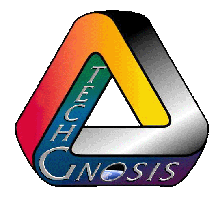by Darren Tofts (words) and Murray McKeigh (vision)
Inteface Publishers, 1998, Australia ISBN 90 5704 1812
"The notion of 'culture' is changing at the speed of information itself. Computer technology is creating a new kind of public, a cyberculture with all its utopian and apocalyptic possibilities. But is that new?
Popular debate generally ignores cyberculture's historical context. The official history begins in the 19th century and tracks the evolution of telecomunications, the egalitarian dream of the global village, and the emergence of the military-industrial complex. However, this omits the
deeper, prehistory of technological transformation of culture that are everywhere felt but nowhere seen in the telematic landscape of the late 20th century. Cyberculture is an extension, rather than an innovation, of human engagement with communication and information technologies.
In creating a prehistory of cyberculture, then, we are not trying to present a genealogy of concatenation, of neatly linked motivations and actions, but rather to construct a narrative of syncopation, of shifting emphases and digressions in word and image. We are, in the spirit of
Heidegger, building a way. Conceived as a jam session between writer and artist, this book is interested in the relationships between humans and technology, creativity and artifice, reality and representations of reality. It seeks to explore cyberculture's unconscious, to present
unexpected encounters in its examination of the technologizing of the wor(l)d.
A work of archeology, this book scapes away the surfaces of the contemporary world to detect the sedimentary traces of the past. A past that inflects the present with the echoes of ancient, unresolved philosophical questions about the relationships between humans and technology."
_________________________________________________________________________
Needless to say, one of the central aspects of this book is the examination of the development of writing as a technology in human communities. I haven't thought of this before, but writing is not biologically determined, so the author suggests that it was with the development of writing 4000-5000 years ago which heralded the creation of the "cyborg" - the human/technology hybrid. (With this in mind, it's interesting, too, to contemplate the nature of the 'net and the web, which is still, essentially, textual communication).
Of course, I've been aware for a long while that it is the capacity of our language which delineates the breadth and depth of our thoughts, so this idea has been quite a revelation.
kath the cyborg

No comments:
Post a Comment